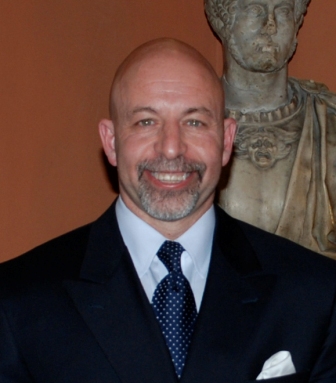 Prof. James Giordano, PhD, is Vice President for Academic Programs and Director of the Center for Neurotechnology Studies at the Potomac Institute for Policy Studies. In the latest post on his blog Neurosecurity, he writes about the ongoing debate over the application of neuroscience and neurotechnology in national security, intelligence and defense (NSID). Prof. Giordano notes that some in the neuroscientific community have called for their colleagues to disavow any involvement in NSID. But he argues that while ethical and moral probity must be maintained, avoidance is not the answer. Prof. Giordano writes, "Thus, I call for some – but certainly not all – neuroscientists and neuroethicists to be actively involved in the discussion and debate, as informed, experienced experts at those tables where guidelines and policies are made, to work proactively to provide lenses and voices to report what neuroscience can and cannot do, and to be participatory in the formulation of directives that shape and govern the ways that neuroS/T should – and should not – be utilized." Click here to read the post in full.
Prof. James Giordano, PhD, is Vice President for Academic Programs and Director of the Center for Neurotechnology Studies at the Potomac Institute for Policy Studies. In the latest post on his blog Neurosecurity, he writes about the ongoing debate over the application of neuroscience and neurotechnology in national security, intelligence and defense (NSID). Prof. Giordano notes that some in the neuroscientific community have called for their colleagues to disavow any involvement in NSID. But he argues that while ethical and moral probity must be maintained, avoidance is not the answer. Prof. Giordano writes, "Thus, I call for some – but certainly not all – neuroscientists and neuroethicists to be actively involved in the discussion and debate, as informed, experienced experts at those tables where guidelines and policies are made, to work proactively to provide lenses and voices to report what neuroscience can and cannot do, and to be participatory in the formulation of directives that shape and govern the ways that neuroS/T should – and should not – be utilized." Click here to read the post in full.
Past Events
Olympics Security Lessons: From Munich to Sochi
The Potomac Institute for Policy Studies
February 20, 2014
16 Annual Terrorism Review 2013 and Outlook 2014
16th Annual Event on "international Cooperation in Combating Terrorism: Review of 2013 and Outlook for 2014" January 24th 2014 National Press Club
Kearsarge Amphibious Ready Group and 26th Marine Expeditionary Unit
USMC Returning Commander Speaker Series: Kearsarge Amphibious Ready Group and 26th Marine Expeditionary Unit
Tehran's Bomb Challenge: Crossroads, Roadblocks, and Roadmaps to Rapprochement?
Potomac Institute For Policy Studies December 5, 2013
Co-Sponsored IUCTS, ICTS, IUCLS at the ILI, CNSL at Univ. of VA School of Law
The Lone Wolf Challenge: Past Experience and Future Outlook
The Potomac Institute For Policy Studies November 25, 2013






